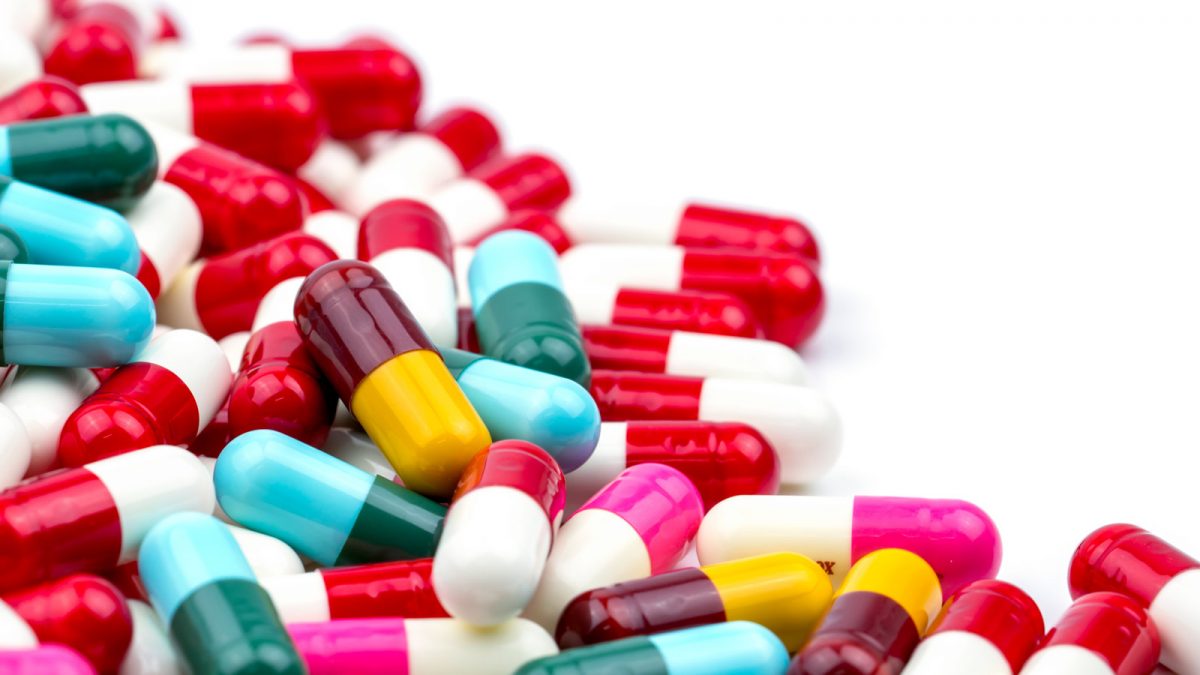Could Antibiotics Make You Fat?
Obesity has become the nation’s number one health crisis. Two-thirds of American adults – and one third of children – are overweight or obese. And worse yet, our size is on the rise.
The U.S. Centers for Disease Control recently released a report predicting that 32 million more Americans will become obese by 2030. That would bring the obesity rates to 42 percent of the U.S. population.
Dr. William Dietz is one of the authors of the report. He notes that overweight children will likely be a major source of the increasing rates. “We know that about 50 percent of severe obesity in adults is the consequence of obesity in childhood,” says Dr. Deitz.
Fast foods, processed foods and sugar-laden drinks are big contributors to this crisis. But the research shows that there is another factor at play… antibiotics!
For a recent study, published in the International Journal of Obesity, researchers evaluated data from over 28,000 Danish children. The data included information about antibiotic use during infancy. The researchers followed up with these children at the age of seven. They discovered that the children who were administered antibiotics during the first six months of life had a significantly greater risk of being overweight (compared to those who were not exposed to antibiotics).
But what does this common treatment for bacterial infection have to do with your weight?
A lot!
Bacteria Balance and the Battle of the Bulge
Your gastrointestinal system is home to trillions of beneficial microbes. These “good bugs” are collectively called microflora. They carry out hundreds of essential functions in your body. They help train your immune system. They synthesize vitamins, disarm carcinogens and even help to regulate your hormones.
These little bugs can affect your weight too. In fact, researchers have discovered that specific types of gut bacteria can encourage your body to store fat… or use it as fuel.
Dr. Ilseung Cho, MD, MS assistant professor of medicine and gastroenterology at New York University School of Medicine explains:
“By using antibiotics, we found we can actually manipulate the population of bacteria and alter how they metabolize certain nutrients. Essentially you’re getting more fuel from the same amount of starting material.”
According to a recent article published in the Proceedings of the National Academy of Sciences, the good bugs in your tract also promote healthy digestion and elimination. On the other hand, certain bad bacteria can slow down the elimination process. This can cause stagnation, bloating and weight gain.
Other studies have shown a marked difference in the populations of gut bacteria in obese and lean people. The same thing has been observed in studies of mice.
The bottom line is that the “good bugs” in your gut promote healthy digestion and elimination. The “bad bugs” can cause you to extract more calories from the same amount of food. And they can also promote constipation.
So where do antibiotics come in? Antibiotics are indiscriminate. Not only do they kill pathogenic or “bad” bacteria… they also kill off the good bacteria. When the numbers of good bacteria fall, it opens the door for harmful bacteria to proliferate. And one important side effect of this could be weight gain.
Dangers in the Medicine Cabinet… and the Fridge too!
You may associate antibiotics with your medicine cabinet. But they can also lurk in your fridge! In fact, 80% of all antibiotics used in the United States are administered to livestock (including farm-raised fish)
The primary purpose of administering antibiotics is to prevent the rapid spread of disease that can happen when livestock are kept in close quarters. But non-organic farmers also use this “feeding trick” to do something else: Fatten up the animals!
And while the residues in conventional meat and dairy products are much less than you would get from a prescription, they can still disturb your delicate balance of flora.
A Natural, Whole Foods Diet and Friendly Flora to Fight Fat
Enjoying a whole foods diet and avoiding processed foods, conventionally-raised meats and excess sugar is the key to staying healthy and maintaining your optimal weight. This is true for children and adults. And it’s also vital to avoid antibiotics whenever possible.
Here are several tips to help your “friendly bacteria” crowd out the fat-storing flora associated with obesity. Be sure to:
- Choose ONLY meats and dairy that are grass-fed and pasture-raised that have not been administered routine antibiotics.
- Enjoy lacto-fermented foods like sauerkraut, kimchi, kombucha and kefir. In order to get the benefit of these probiotic foods, ensure they are not heat processed. True lacto-fermentation does not use vinegar or heat in the process. Check your local farm or try Bubbie’s brand lacto-fermented sauerkraut and pickles, which are commercially available.
- Take a high quality probiotic supplement.
- Eliminate refined carbohydrates from your diet and reduce sugar consumption.
- Seek natural immune-boosting alternatives to prescription antibiotics.
By providing your family with the whole foods diet that nature intended, you’ll help shape lean, strong bodies and vigilant immune systems that thwart illness. This will reduce the need for antibiotics… and the risk of obesity too!





Leave a Reply